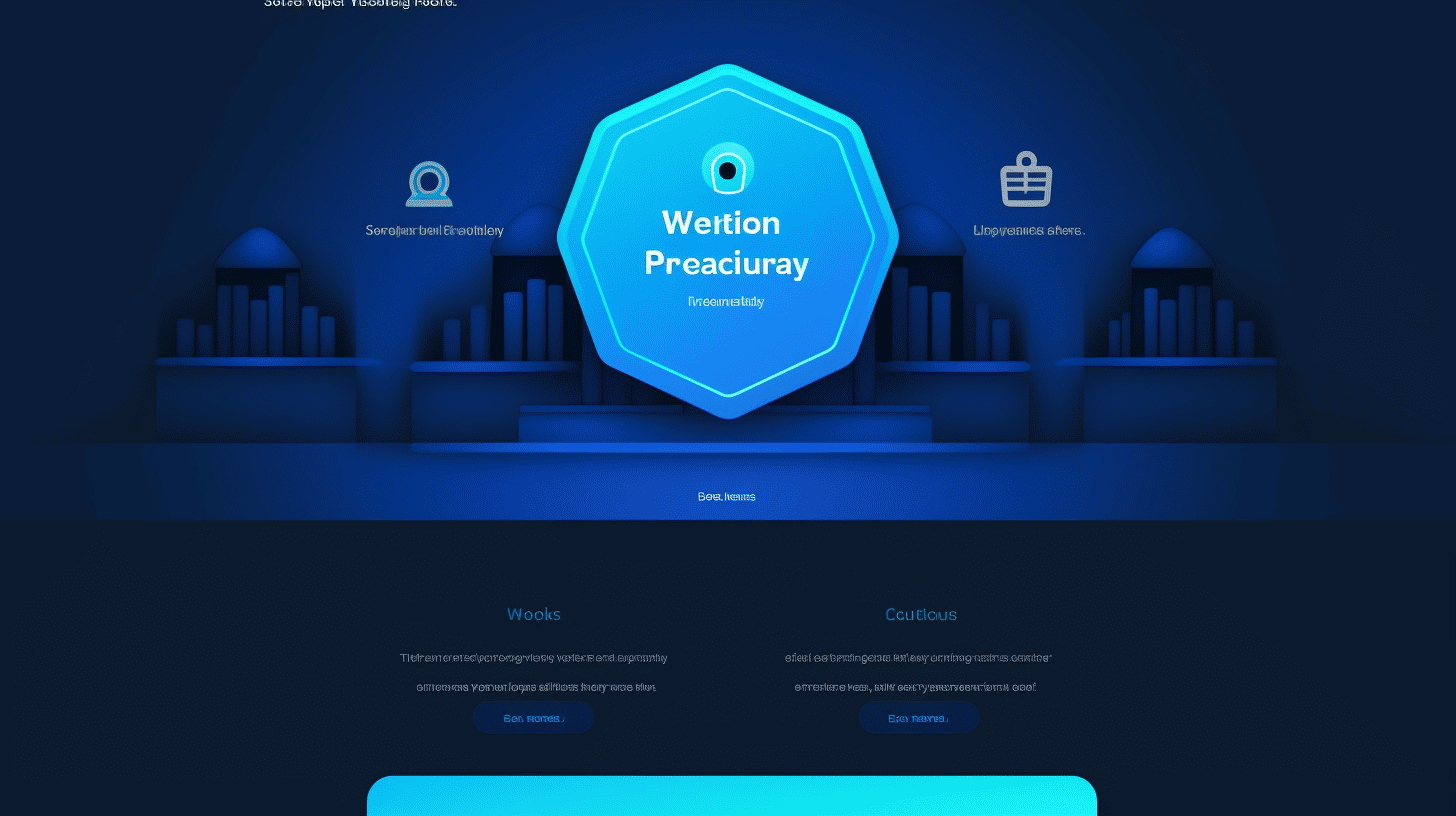In today’s digital age, having a strong online presence is crucial for businesses and individuals alike. WordPress, with its user-friendly interface and customizable features, has become one of the most popular platforms for building websites. However, managing and maintaining a WordPress website can be a time-consuming task that requires constant attention. That’s where automation comes in.
Automation plugins for WordPress can help streamline various tasks, automate repetitive processes, and ensure the smooth functioning of your website. From managing user interactions to optimizing your site for search engines, these plugins provide a range of benefits that allow you to focus on what matters most – creating valuable content and growing your online presence.
In this article, we will explore some popular automation plugins that can enhance the functionality and security of your WordPress website. Additionally, we will delve into the importance of automation and the steps you can take to secure your WordPress site. By implementing these strategies, you can save time, optimize performance, and safeguard your website against potential threats.
So, let’s dive in and discover how automation and security go hand in hand to help you achieve a reliable and high-performing WordPress website. 🚀
Automation Plugins for WordPress
In today’s fast-paced digital world, efficiency and productivity are essential. This holds especially true when it comes to managing a WordPress website. Thankfully, there are automation plugins available that can help streamline site functionality and improve overall performance. Whether you’re a seasoned developer or a WordPress novice, automation plugins can save you time, prevent errors, and enhance the quality of your website.
One popular automation plugin for WordPress is AutomatorWP. This plugin allows you to create and run automated workflows, or “Recipes”, without the need for coding skills. From sending personalized emails to integrating with other popular plugins like WooCommerce and BuddyPress, AutomatorWP empowers you to automate various tasks and seamlessly enhance user experience on your website.
Another powerful automation plugin that deserves mention is Uncanny Automator. With Uncanny Automator, you can connect different plugins and automate complex actions with ease. This plugin boasts an impressive library of integrations, allowing you to streamline processes across your WordPress site. Whether you want to trigger a specific action based on user interactions or automate data syncing between platforms, Uncanny Automator has got you covered.
But automation plugins aren’t limited to specific functions. In fact, many well-known WordPress plugins offer automation features as part of their overall package. For example, WPForms, a popular form builder plugin, allows you to automate form submissions, send notification emails, and even integrate with third-party apps like PayPal and Mailchimp. Similarly, plugins like Revive Old Post, MonsterInsights, and Google Optimize offer automation capabilities to enhance your website’s social media presence, track user data, and optimize your website for better performance, respectively.
For those who want a more comprehensive automation solution, there are plugins like the HubSpot WordPress Plugin, Growmatik, and Yoast SEO. The HubSpot WordPress Plugin allows you to sync your WordPress site with HubSpot’s powerful CRM, automate marketing campaigns, and track visitor behavior. Growmatik, on the other hand, is an all-in-one marketing automation plugin that offers features like personalized content recommendations, email marketing automation, and advanced analytics. Finally, Yoast SEO not only helps with optimizing your website for search engines but also offers automation capabilities such as automatically generating XML sitemaps and managing meta tags.
In summary, using automation plugins for your WordPress website can bring a multitude of benefits. By automating tasks and integrating different plugins, you can save time, reduce errors, and improve overall site performance. Whether you choose a dedicated automation plugin or opt for one that offers automation features alongside other functionalities, incorporating automation into your WordPress workflow is a smart move. So why not give automation plugins a try and experience the power of efficiency and productivity at your fingertips?
✨ Remember, when using automation plugins, always make sure to select reputable ones from trusted sources and regularly update them to maintain compatibility and security. Happy automating! ✨
Importance of Automation for WordPress Websites
In today’s fast-paced digital world, efficiency and productivity are key for any successful website. One way to achieve these goals is through automation. Automating various tasks on a WordPress website can save time, reduce errors, and improve overall website performance. Let’s dive into the importance of automation for WordPress websites and how it can benefit website owners and managers.
Streamlined Content Publishing
Managing and publishing content on a WordPress website can be a time-consuming process. From creating drafts to scheduling posts, these tasks can eat up valuable time that could be spent on other important aspects of website management. Automation allows website owners to streamline the content publishing process and save time in the following ways:
- Scheduled Content: With automation, you can schedule posts to be published at specific dates and times. This eliminates the need to manually publish content and ensures that your audience receives new content consistently.
- Bulk Actions: Automation tools enable you to perform bulk actions, such as updating categories or tags, across multiple posts or pages at once. This saves you from individually making the same changes on each page, increasing efficiency and reducing potential errors.
Improved Website Security
Ensuring the security of a WordPress website is of utmost importance. Hackers are constantly evolving their techniques, making it crucial for website owners to stay two steps ahead. Automation can play a significant role in enhancing website security in the following ways:
- Regular Backups: Automatic backup systems can be set up to create regular backups of your website files and database. This ensures that your website has a recent and functional backup in the event of any security breaches or data loss.
- Security Scans: Automation tools can scan your WordPress website for vulnerabilities and malware on a regular basis. This helps to identify potential security threats and take proactive measures to protect your website.
Efficient Website Maintenance
Regular website maintenance is essential for keeping your WordPress site running smoothly. Automation can help streamline various maintenance tasks, allowing you to focus on other important aspects of website management:
- Updates and Upgrades: Automation tools can be set up to automatically install WordPress core updates, themes, and plugins. This ensures that your website is always up to date, benefiting from the latest features and security enhancements.
- Broken Link Detection: Broken links can negatively impact user experience and SEO. Automation tools can scan your website for broken links and notify you, allowing you to fix them promptly.
In conclusion, automation is a game-changer for WordPress website owners and managers. By automating tasks like content publishing, security, and maintenance, you can save time, reduce errors, and improve overall website efficiency. Consider utilizing managed WordPress solutions that offer automation features to maximize the potential of your website.
Learn more about the power of managed WordPress solutions for efficient website management here.
Securing Your WordPress Website
Introduction
In today’s digital age, securing your WordPress website is of utmost importance. With cyber threats constantly evolving, it is crucial to take proactive measures to protect your website and its sensitive data. This article will explore general security measures, key security tools and plugins, and advanced security measures that will help fortify your WordPress website against potential attacks.
General Security Measures
When it comes to securing your WordPress website, there are a few fundamental security measures that should be in place. These measures serve as the foundation for a secure website and are essential for protecting against common threats. Some important general security measures include:
- Regularly updating your WordPress core, themes, and plugins. Updates often include security patches and bug fixes, so keeping your website up to date is crucial in preventing vulnerabilities from being exploited.
- Using strong, unique passwords for all user accounts, including your WordPress admin account. A strong password should consist of a combination of uppercase and lowercase letters, numbers, and special characters.
- Installing a reliable security plugin that can help monitor and protect your website. These plugins provide features such as malware scanning, firewall protection, and login security enhancements.
Key Security Tools and Plugins
To enhance the security of your WordPress website, there are several security tools and plugins available that offer advanced protection and features. It’s essential to choose reputable and well-established plugins to ensure the highest level of security. Some top security plugins for WordPress include:
- Sucuri Security: Known for its comprehensive security features, Sucuri Security offers website scanning, malware removal, and web application firewall (WAF) protection. It also provides security notifications, which can alert you of any suspicious activity on your website.
- WordFence: WordFence is another popular security plugin that offers real-time threat defense, malware scanning, and a powerful firewall. It also includes features such as login security, two-factor authentication, and live traffic monitoring.
- BulletProof Security: With its strong emphasis on protecting your website against brute force attacks, BulletProof Security offers features like login security, database backup, and a built-in firewall. It also provides file monitoring to detect any unauthorized changes to your site.
Advanced Security Measures
For those looking to take their website security to the next level, implementing advanced security measures can provide an extra layer of protection. These measures involve more complex configurations and settings but can significantly enhance the security of your WordPress website. Some advanced security measures include:
- Limiting login attempts: By restricting the number of login attempts, you can deter brute force attacks that aim to guess the correct login credentials.
- Implementing two-factor authentication (2FA): 2FA adds an extra step for authentication, requiring users to provide a secondary form of verification, such as a unique code sent to their mobile device, in addition to their password.
- Hiding specific directories: Concealing sensitive directories such as wp-admin and wp-includes can make it harder for attackers to locate and exploit vulnerabilities.
Conclusion
Securing your WordPress website is a critical task that should never be overlooked. By following general security measures, using key security tools and plugins, and implementing advanced security measures, you can significantly reduce the risk of your website falling victim to cyber attacks. Remember, regular updates, strong passwords, and reliable security plugins are just the beginning. Taking extra precautions such as limiting login attempts and implementing two-factor authentication can provide an added layer of protection. With these measures in place, you can have peace of mind knowing that your WordPress website is secure.
Imperative of Regular Security Assessment
In today’s digital landscape, where cyber threats are rampant, regular security assessments have become imperative for businesses and individuals alike. With the increasing complexity and sophistication of attacks, it is no longer enough to rely solely on traditional security measures.
To truly protect your online assets, including your WordPress website, you need to stay one step ahead of potential vulnerabilities. This is where regular security assessments come into play. By conducting periodic assessments, you can identify and address any weaknesses or potential security loopholes before they are exploited by malicious actors.
Here are a few reasons why regular security assessments are crucial:
- Addressing Vulnerabilities: Threats such as SQL injections, brute force attacks, and malware infections are constantly evolving. Regular security assessments help you stay updated on the latest vulnerabilities and take proactive measures to address them.
- Preventing Potential Threats: By conducting regular assessments, you gain a deeper understanding of your website’s security weaknesses. This allows you to implement appropriate measures, such as installing the latest security updates and patches, to prevent potential threats from exploiting vulnerabilities.
- Maintaining Trust and Reputation: A security breach can severely damage your business’s reputation and erode the trust of your customers. Regular security assessments demonstrate your commitment to safeguarding sensitive information and can help maintain the trust and confidence of your audience.
- Compliance with Regulations: Depending on your industry, you may be subject to specific security regulations and compliance requirements. Regular security assessments ensure that you meet these standards, mitigating the risk of non-compliance penalties and legal ramifications.
To further emphasize the importance of regular security assessments, look no further than the WordPress Vulnerability Report for September 2023. This comprehensive report highlights the latest vulnerabilities discovered in WordPress and emphasizes the need for regular security assessments to protect your WordPress site.
Remember, when it comes to cybersecurity, it’s better to be proactive than reactive. Regular security assessments are a key component of a robust security strategy that can help safeguard your WordPress site from potential threats. Don’t wait for an attack to happen; take charge of your website’s security today!
Learn more about the vulnerabilities addressed in the September 2023 WordPress Vulnerability Report.
Conclusion
In conclusion, automating and securing your WordPress website is crucial for maintaining reliable performance and ensuring the safety of your online presence. By utilizing automation plugins such as AutomatorWP, Uncanny Automator, WPForms, Revive Old Post, MonsterInsights, Google Optimize, HubSpot WordPress Plugin, Growmatik, and Yoast SEO, you can streamline processes, save time, and enhance the overall efficiency of your website operations.
Moreover, implementing robust security measures is essential to protect your WordPress website from potential threats and vulnerabilities. By adopting general security measures, leveraging key security tools and plugins, and implementing advanced security measures, you can safeguard your website and user data.
Regular security assessments are imperative to identify and address any weaknesses or vulnerabilities in your website’s security. Conducting periodic assessments allows you to stay proactive in protecting your WordPress website and maintaining its integrity.
In summary, automation and security go hand in hand when it comes to maintaining a reliable and secure WordPress website. By automating tasks and implementing robust security measures, you can optimize your website’s performance and safeguard it against potential risks.
Consider partnering with a managed WordPress cloud hosting platform like Managed-WP™. With their expertise in simplifying infrastructure, offering freedom in digital experiences, and providing 24/7/365 problem-solving, you can ensure that your website remains secure and performs at its best. Learn more about Managed-WP™ here. 💡
Frequently Asked Questions
- What are some ways to automate and secure WordPress websites?
Some ways to automate and secure WordPress websites include: 1. Regularly update WordPress core, themes, and plugins, 2. Use a reliable security plugin like Wordfence or Sucuri, 3. Enable two-factor authentication for admin accounts, 4. Implement strong passwords and limit login attempts, 5. Set up automated backups and site monitoring.
- Why is it important to automate and secure WordPress websites?
Automating and securing WordPress websites is important to ensure reliable performance, prevent security breaches, protect sensitive data, and minimize downtime. Regular updates, strong security measures, and automated backups help maintain website integrity and user trust.
- What are the benefits of using security plugins for WordPress?
Security plugins for WordPress offer benefits such as real-time threat monitoring, malware scanning, firewall protection, IP blocking, login page hardening, and notification alerts. They strengthen the overall security of your website and provide peace of mind.
- How often should I update WordPress core, themes, and plugins?
It is recommended to update WordPress core, themes, and plugins as soon as new updates are available. Regular updates ensure that your website has the latest features, bug fixes, and security patches, reducing the risk of vulnerabilities.
- What are the essential security measures to implement for WordPress websites?
Essential security measures for WordPress websites include: 1. Using strong passwords and limiting login attempts, 2. Installing an SSL certificate for secure data transfer, 3. Restricting access to sensitive files and directories, 4. Disabling file editing through the WordPress dashboard, 5. Regularly scanning for malware and suspicious activities.



















